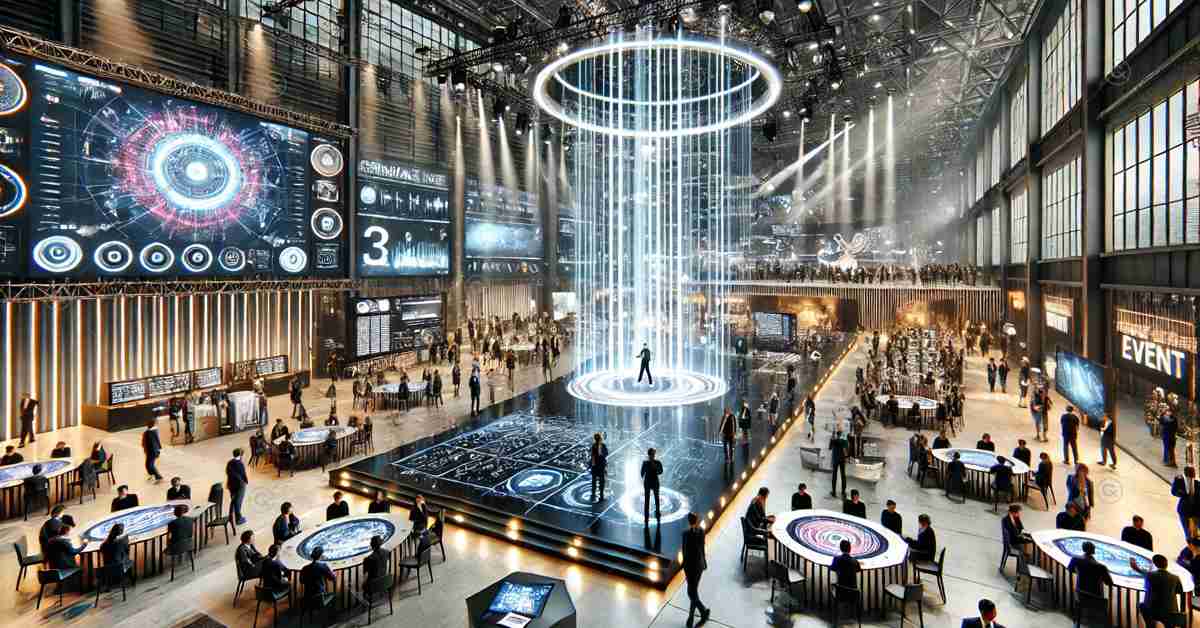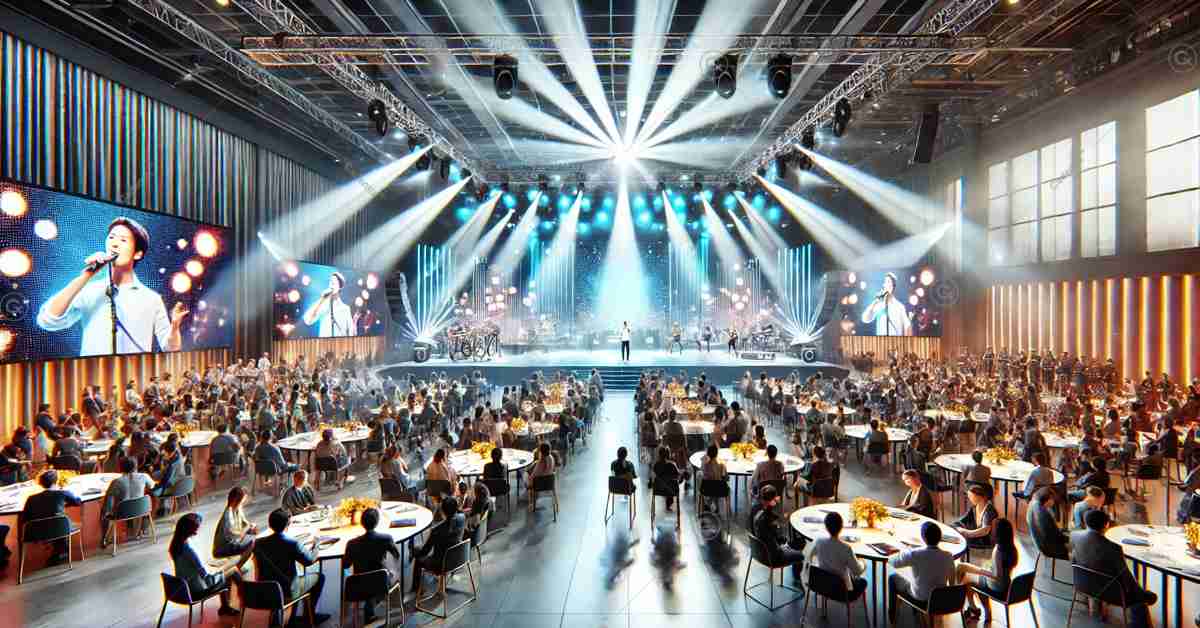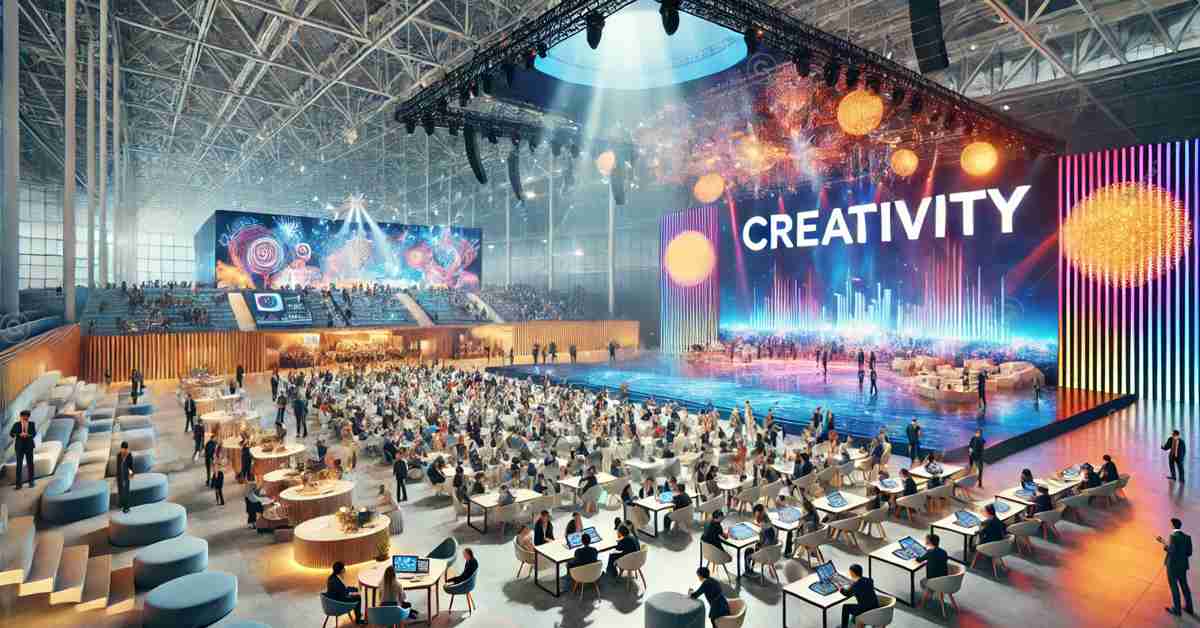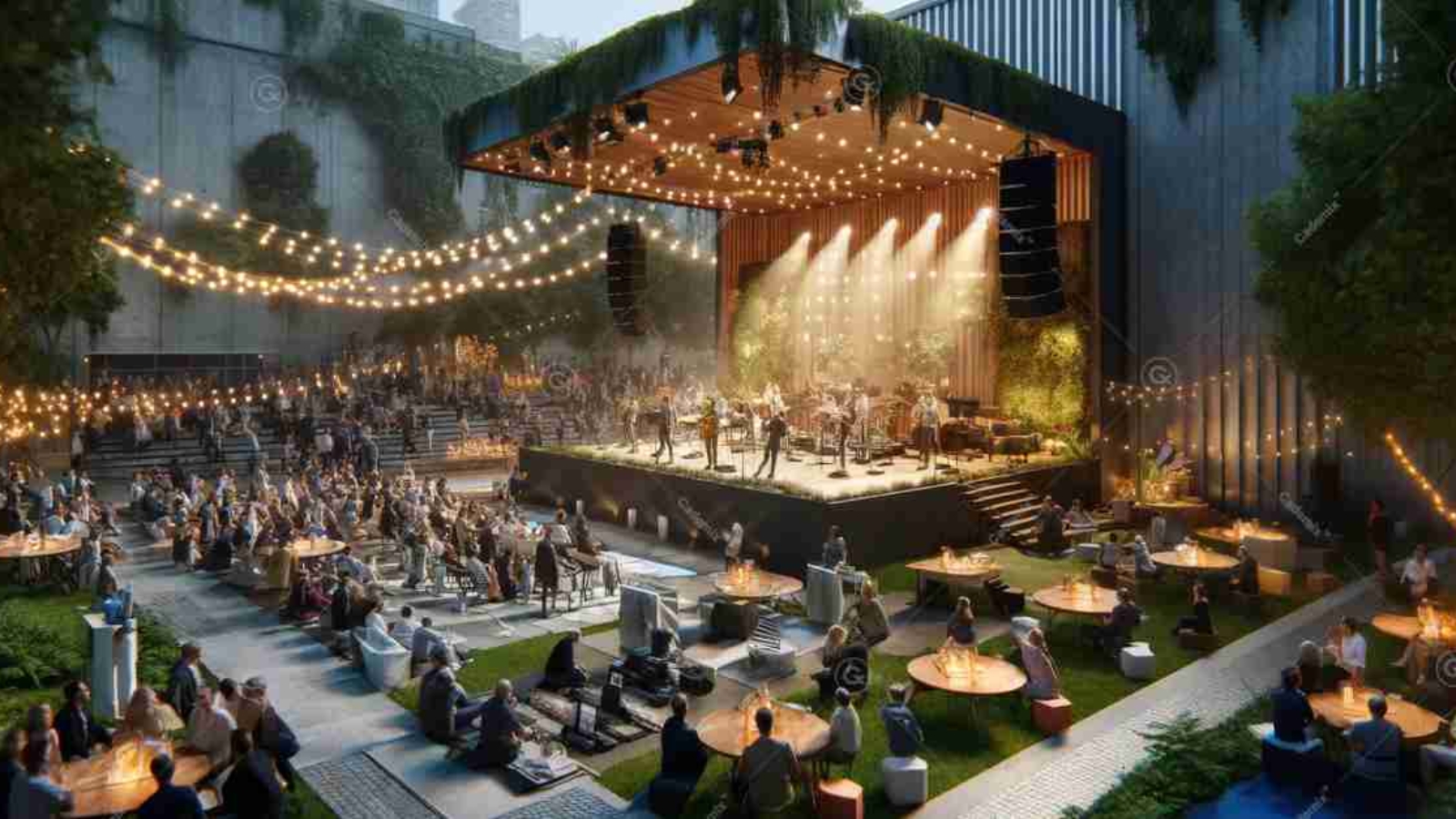Creativity plays a pivotal role in event management, serving as the key to designing impactful and memorable experiences that resonate with attendees. This article explores how innovative thinking in event planning can elevate events, ensuring they stand out in a competitive landscape. By leveraging the latest event technology tools, integrating experiential marketing strategies, and staying ahead of event trends for 2024, planners can push boundaries and create unique, engaging events. Additionally, we provide practical tips for balancing creativity with budget management, effective communication, and post-event evaluation to ensure success in every aspect of event management.
By Samareh Ghaem Maghami, Associate Consultant and Project at Cademix Institute of Technology
Introduction
In the dynamic world of event management, creativity is not just a desirable trait—it’s a necessity. As the industry evolves, standing out in a crowded market requires more than just logistical precision; it demands innovative thinking that captures the imagination and leaves a lasting impression on attendees. Event planning today goes beyond mere organization; it’s about crafting experiences that resonate, inspire, and push the boundaries of what’s possible. Whether you’re orchestrating a corporate conference, a grand wedding, or an international expo, incorporating creativity into your event strategy can be the difference between an ordinary gathering and an extraordinary experience.
In this article, we delve into the critical role that creativity plays in event management, offering actionable insights on how to generate innovative ideas that not only meet but exceed expectations. From leveraging cutting-edge event technology tools to embracing experiential marketing and staying ahead of event trends, we will explore how to infuse creativity into every aspect of your event planning process.

The Importance of Creativity in Event Planning
In the competitive landscape of event management, creativity is the cornerstone that can set your event apart from the rest. But what does creativity in event planning truly mean? At its core, it’s about approaching each event with a fresh perspective, using innovative ideas to craft unique and engaging experiences that captivate your audience. In a world where attendees are constantly bombarded with content and experiences, the ability to think outside the box is what makes an event memorable.
Creativity impacts every facet of an event—from the design and atmosphere to the way attendees interact with the content. A creatively planned event not only meets logistical goals but also delivers an emotional and intellectual experience that resonates with participants long after the event concludes. By integrating creative elements into event marketing strategies, you can significantly enhance engagement, ensuring your event not only attracts but also retains the attention of your target audience.
Moreover, staying ahead of event trends in 2024 requires a creative mindset. The event industry is rapidly evolving, with new technologies and trends emerging constantly. Planners who can anticipate and incorporate these trends creatively will be better positioned to deliver cutting-edge events that stand out in the marketplace. Whether through the use of innovative event technology tools or by embracing experiential marketing tactics, creativity ensures that your event remains relevant, dynamic, and impactful.
In essence, creativity is not just a component of successful event management—it’s the driving force behind it. By fostering a culture of creativity, you can transform ordinary events into extraordinary experiences, leaving a lasting impression on your attendees and setting a new standard for the industry.
Strategies to Foster Creativity in Event Planning
To excel in event management, it’s essential to cultivate creativity at every stage of the planning process. Implementing effective strategies to spark innovative ideas can lead to more engaging and memorable events. Here are some proven methods to enhance creativity in event planning:
1. Brainstorming Techniques
Creativity often begins with effective brainstorming. Techniques like mind mapping, brainwriting, and collaborative workshops can help your team generate a wide range of ideas. Encouraging an open and non-judgmental environment allows for the free flow of thoughts, leading to unique concepts that might not emerge in more structured settings. This approach is particularly useful in project management and logistics planning, where new and creative solutions can significantly enhance the event’s overall impact.
2. Leveraging Event Technology Tools
Incorporating the latest event technology tools can be a game-changer in fostering creativity. Tools such as virtual reality (VR), augmented reality (AR), and AI-driven personalization can transform traditional event formats into immersive experiences. These technologies enable event planners to create interactive environments that captivate attendees and offer new ways to engage with the event content. Staying up-to-date with event trends 2024 ensures you’re utilizing the most cutting-edge tools available, keeping your events innovative and ahead of the curve.
3. Incorporating Experiential Marketing
Experiential marketing is a powerful strategy that allows attendees to interact with a brand or message in a meaningful way. By incorporating creative, experience-driven elements into your events, you can forge a deeper connection with your audience. Whether through hands-on activities, live demonstrations, or immersive storytelling, experiential marketing transforms passive attendees into active participants, making the event more memorable and impactful.
4. Embracing Hybrid Events
As the demand for hybrid events continues to grow, creativity becomes even more critical. Blending physical and digital components requires innovative approaches to ensure a seamless and engaging experience for both in-person and virtual attendees. By creatively integrating technology, content, and interaction, hybrid events can offer the best of both worlds, expanding your reach while maintaining a high level of engagement.
Incorporating these strategies into your event planning process not only boosts creativity but also enhances the overall effectiveness of your events. By continuously exploring new ideas and technologies, you can deliver innovative experiences that leave a lasting impression on your audience, setting a new standard in event management.

Overcoming Challenges in Creative Event Planning
While creativity is essential in event management, it often comes with its own set of challenges. Balancing innovative ideas with practical constraints like budgets, stakeholder expectations, and logistical hurdles can be daunting. However, with the right strategies, these challenges can be effectively managed, allowing you to bring your creative vision to life.
1. Balancing Creativity with Budget Management
One of the most common challenges in creative event planning is staying within budget while still delivering a unique and memorable experience. Budget management doesn’t have to stifle creativity; instead, it can drive innovation. By prioritizing key elements that will have the most significant impact, and being resourceful with available funds, you can maximize the budget without compromising on creativity. Consider utilizing cost-effective event technology tools that offer high engagement at a lower cost, or negotiating with vendors to find creative solutions that align with your financial constraints.
2. Vendor Negotiation and Collaboration
Effective vendor negotiation is crucial when bringing creative ideas to life. Establishing strong relationships with vendors and collaborators can open the door to flexible pricing, customized solutions, and innovative offerings that enhance your event. Communicate your creative vision clearly and work closely with vendors to explore possibilities that fit within your budget and logistical framework. By treating vendors as partners in the creative process, you can achieve more than what might initially seem possible.
3. Stakeholder Management
Managing stakeholder expectations while pursuing a creative vision can be a delicate balancing act. Stakeholder management involves ensuring that all parties involved—from clients to sponsors to team members—are aligned with the creative direction of the event. Clear and effective communication is key here. Regular updates, visual mockups, and detailed plans can help stakeholders visualize the creative elements and understand how they contribute to the overall success of the event. By engaging stakeholders early in the process and incorporating their feedback, you can gain their support and minimize resistance to bold, creative ideas.
4. Navigating Logistical Challenges
Logistics are the backbone of any successful event, and creative ideas must be grounded in practical execution. Logistics planning requires a keen eye for detail, ensuring that every creative element is feasible within the event’s framework. This might involve rethinking venue layouts, considering alternative materials, or devising new methods for attendee interaction. Creativity in logistics isn’t about taking shortcuts but rather finding innovative ways to overcome obstacles and enhance the event experience without compromising on quality or safety.
By addressing these challenges head-on, you can create a solid foundation that supports and enhances creativity in event planning. Overcoming these hurdles not only allows you to deliver on your creative vision but also ensures that your event is executed seamlessly, leaving a lasting impression on attendees and stakeholders alike.
Case Studies of Successful Creative Events
Understanding how creativity has been successfully implemented in real-world scenarios can provide valuable insights for your own event management endeavors. Examining case studies of innovative events highlights the power of creativity in event planning and offers practical lessons that can be applied across various types of events.
1. Innovative Event Examples
One notable example is the annual South by Southwest (SXSW) festival, which has become a benchmark for creativity in event planning. By blending technology, music, film, and interactive media, SXSW consistently delivers an engaging, multi-sensory experience that keeps attendees coming back year after year. The event’s success lies in its ability to stay ahead of event trends and leverage the latest event technology tools to create immersive and interactive experiences. Whether it’s through virtual reality installations, AI-driven networking tools, or experiential marketing activations, SXSW demonstrates how creativity can elevate an event to iconic status.
Another example is the Google I/O conference, which showcases creativity in hybrid events. By combining in-person experiences with cutting-edge digital content, Google I/O effectively engages both physical and virtual audiences. The use of interactive live streams, virtual demos, and real-time Q&A sessions illustrates how creativity in event planning can overcome the limitations of a traditional format, making the event accessible and engaging for a global audience.
2. Lessons Learned from International Event Management
International event management adds another layer of complexity where creativity plays a crucial role. The World Economic Forum in Davos, Switzerland, is an excellent case of how creative event management can address the unique challenges of an international event. The event organizers creatively manage logistics, security, and communication for high-profile attendees from around the world. By incorporating cutting-edge technologies and innovative logistics solutions, they ensure smooth operations while also providing an environment conducive to high-level discussions and networking.
Additionally, the Cannes Film Festival stands as a prime example of how creativity in event marketing and experiential marketing can elevate an event’s prestige. From the glamorous red carpet to exclusive screenings and networking events, every aspect of Cannes is meticulously planned to create an unforgettable experience. The festival’s ability to blend culture, entertainment, and business has made it one of the most sought-after events globally, illustrating how creativity can enhance both the event’s appeal and its economic impact.
3. Practical Applications for Event Planners
These case studies underscore the importance of integrating creativity into all aspects of event management, from project management and logistics planning to stakeholder management and event marketing. Event planners can take inspiration from these examples to innovate within their own events, regardless of scale or budget. By staying informed about the latest event trends and technologies, and by learning from the successes of others, planners can push the boundaries of what’s possible, delivering events that are not only logistically sound but also creatively outstanding.
These real-world examples demonstrate that with the right combination of creativity and strategic planning, any event can be transformed into a memorable experience that resonates with attendees and sets new standards in the industry. Whether you’re managing a small local gathering or a large international conference, the lessons learned from these creative events can help guide your own event management journey, ensuring that your events are both innovative and successful.

Practical Tips for Event Planners
Successfully integrating creativity into event management requires not only inspiration but also practical strategies that can be applied across various stages of the planning process. Here are some actionable tips for event planners to ensure their events are both innovative and effective.
1. Crafting Creative Event Marketing Strategies
A well-executed event marketing strategy is essential for capturing attention and driving attendance. To stand out, consider incorporating experiential marketing techniques that allow potential attendees to interact with your event before it even begins. This could include engaging teaser campaigns, interactive social media content, or behind-the-scenes videos that offer a glimpse into the event’s creative elements. Utilizing event technology tools like augmented reality (AR) filters or AI-powered chatbots can also enhance your marketing efforts, providing a personalized and immersive experience that excites and engages your audience.
2. Ensuring Effective Communication
Effective communication is the backbone of successful event planning. From coordinating with vendors and stakeholders to briefing your team on the creative vision, clear and consistent communication ensures that everyone is aligned and working towards the same goals. Utilize collaboration platforms and project management tools to keep all parties informed and on track. Additionally, developing detailed event briefs and creative presentations can help communicate complex ideas and ensure that the creative aspects of the event are understood and executed as intended.
3. Balancing Creativity with Logistics
Creative ideas are only as good as their execution, and this is where logistics planning comes into play. When integrating creative elements into your event, it’s crucial to consider how they will be practically implemented. Work closely with your logistics team to ensure that the creative aspects are feasible within the event’s timeframe and budget. This might involve creative problem-solving, such as finding alternative materials or venues that support your creative vision while still adhering to logistical constraints.
4. Post-Event Evaluation for Continuous Improvement
After the event, conducting a thorough post-event evaluation is essential for assessing the success of your creative strategies. Gather feedback from attendees, stakeholders, and your team to understand what worked well and what could be improved. This evaluation should include both quantitative data, such as attendance numbers and engagement metrics, and qualitative feedback, such as attendee satisfaction and brand perception. By analyzing this information, you can refine your approach for future events, ensuring that your creative ideas continue to evolve and resonate with your audience.
5. Leveraging Technology for Innovation
In today’s digital age, staying ahead in event management means embracing the latest event technology tools. From virtual event platforms to AI-driven analytics, technology offers endless possibilities for enhancing creativity in your events. Consider how tools like live polling, interactive event apps, or virtual reality experiences can be used to engage attendees and create a more dynamic event environment. Keeping up with event trends in 2024 and beyond will help you identify new technologies that can elevate your event planning process and deliver innovative experiences.
By applying these practical tips, event planners can not only foster creativity but also ensure that it is effectively integrated into every aspect of their events. Whether it’s through innovative marketing, seamless logistics, or cutting-edge technology, these strategies will help you deliver events that are both creatively inspired and flawlessly executed, setting a new standard in event management.

Future of Creativity in Event Planning
As the event industry continues to evolve, the role of creativity in event planning will become increasingly vital. Looking ahead, the future of event planning will be shaped by a combination of emerging technologies, changing audience expectations, and a growing emphasis on sustainability. To stay competitive and relevant, event planners must be prepared to embrace these trends and harness their creative potential.
1. Event Trends 2024 and Beyond
The landscape of event management is always shifting, with new event trends emerging each year. In 2024, we can expect to see a greater focus on personalization, with events becoming more tailored to individual attendee preferences. This trend will require event planners to think creatively about how to gather and utilize data to enhance the attendee experience. Additionally, the rise of hybrid events will continue, blending physical and digital experiences in innovative ways. As technology evolves, so too will the opportunities for creativity in crafting these seamless, multi-platform experiences that engage audiences both in-person and online.
2. Sustainability and Creative Solutions
With increasing awareness of environmental issues, sustainability is becoming a crucial consideration in event management. The challenge lies in finding creative solutions that reduce the environmental impact of events without compromising on the quality of the experience. This could involve everything from selecting eco-friendly venues and materials to designing waste-reduction strategies and incorporating virtual elements to minimize travel. Creative event planners will need to think outside the box to integrate sustainability into their events in meaningful and impactful ways, setting a new standard for responsible event planning.
3. Leadership in Event Planning
As the industry evolves, strong leadership in event planning will be essential for fostering a culture of creativity within teams. Leaders in event management must encourage innovation, support risk-taking, and provide the resources needed to explore new ideas. By promoting a collaborative environment where creativity is valued, event planners can unlock the full potential of their teams, leading to groundbreaking events that push the boundaries of what’s possible. Leadership also involves staying informed about the latest event technology tools and trends, ensuring that your team is equipped to deliver cutting-edge experiences.
4. The Role of Technology in Shaping Creativity
Technology will continue to play a pivotal role in shaping the future of creativity in event planning. With advancements in AI, virtual reality, and data analytics, event planners have more tools than ever to create personalized, immersive, and engaging experiences. The integration of these technologies will not only enhance the creative aspects of events but also allow for more efficient and effective planning processes. Planners who embrace these technologies will be better positioned to deliver innovative events that meet the evolving expectations of attendees.
5. Continuous Innovation and Adaptation
The future of creativity in event planning lies in continuous innovation and the ability to adapt to changing conditions. Whether it’s responding to new audience preferences, integrating the latest technology, or finding creative ways to overcome challenges, the most successful event planners will be those who are constantly evolving. By staying ahead of industry trends, fostering a culture of innovation, and embracing new tools and techniques, you can ensure that your events remain at the forefront of the industry, delivering experiences that are not only memorable but also groundbreaking.
In conclusion, the future of creativity in event planning is bright, with endless possibilities for those willing to think outside the box. As you look to the future, remember that creativity is not just a tool for differentiation but a driving force behind the success of your events. By embracing innovation, sustainability, and technology, you can create events that not only meet the expectations of today’s audiences but also set new standards for the industry in the years to come.
Conclusion
In the ever-evolving world of event management, creativity is not just an option—it’s a necessity. As we have explored throughout this article, the role of creativity in event planning is pivotal in crafting experiences that resonate with attendees, stand out in a crowded marketplace, and set new industry standards. From innovative event marketing strategies to the integration of cutting-edge event technology tools and the embrace of sustainability, creativity is the driving force that can transform any event into a memorable and impactful occasion.
By staying ahead of event trends in 2024, leveraging the latest technological advancements, and applying creative solutions to logistical and budgetary challenges, event planners can deliver extraordinary events that exceed expectations. Moreover, strong leadership and a commitment to continuous innovation will ensure that your events remain at the forefront of the industry, paving the way for future success.
As you move forward in your event management journey, remember that the power of creativity lies in its ability to inspire, engage, and transform. Whether you’re planning a small corporate gathering or a large international conference, think outside the box and let your creativity lead the way. By doing so, you’ll not only meet the demands of today’s audiences but also set a new benchmark for what’s possible in the dynamic and exciting world of event planning.

About the Author
Samareh Ghaem Maghami is a seasoned event planner and creative professional with a rich background in interior decoration and event management. Currently pursuing a master’s degree at Wiener Neustadt, Samareh is also a proud member of the Cademix Institute of Technology, where she continues to expand her expertise in event planning and management. With a passion for innovation and a commitment to excellence, Samareh brings a unique blend of artistic vision and practical experience to every project she undertakes. For more insights into the evolving world of event management, be sure to read her latest article on “The Impact of Technology on Event Planning,” published in the Cademix Magazine.
For inquiries, collaborations, or further discussions on event planning, feel free to contact Samareh directly and explore her other articles for more valuable perspectives.
E-mail: sam.gh.maghami@gmail.com
E-mail: samareh.ghaem-maghami@cademix.org
LinkedIn: https://www.linkedin.com/in/samareh-ghaem-maghami
Xing: https://www.xing.com/profile/Samareh_GhaemMaghami

